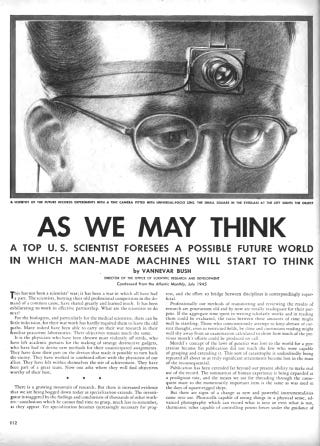💠 Sunday Scaries (09/13/20)
A cornerstone of internet history, economics of open-source, a guide to making an impact
Hi everyone,
Writing to you from Venice, California.
I just wrapped up two wonderful two years with Anthem’s Digital group. While there, my team and I helped launch a first-of-its-kind blockchain consortium. In an industry with rising administrative spending, this type of governance structure acts as a catalyst to reduce coordination costs. I’m also proud of our work to help people control how their health data is used and stored. I firmly believe that it’s important to celebrate endings, so I’m taking some time off before diving into my next adventure.
That means more time for reading, writing, and sailing. Subscribers should expect to see more content coming out over the next few weeks as I settle into my new routine.
It also means that I’m open for conversations! If you’re in Southern California and would like to meet up for a socially distanced walk or coffee, please feel free to reach out. My current flexibility means I can mosey out of the house at two o’clock on a Tuesday — I’m planning to take full advantage of this.
What’s New From Me:
Practical Advice For Changing Jobs: I recently transitioned out of my role as a Product Manager. It struck me just how little documentation online exists for people interested in executing a successful transition.
I wrote this post to help others who are considering how to spend their last few weeks at a company. There will be many demands for your attention -- this essay discusses how to prioritize your time.
In This Week’s Edition:
[💡 Writing] As We May Think (1945): The article that inspired the personal computer. Written by the man who led the United States R&D efforts during World War II, this essay is a cornerstone of internet history. It lays out a compelling picture of a world where humans are augmented by a “memex”; a machine that extends and connects knowledge across the globe. The essay also describes the early concept of a hyperlink and a device that readers today would recognize as Musk’s Neuralink. This essay inspired an entire generation of thinkers, including the internet pioneer Doug Engelbart. If you’re looking for inspiration for your next project, start here. Notes.

[📈 Economics] The new open-source economics (2005): Open-source software is the invisible infrastructure that powers the internet. Recent books, including Working in Public from Stripe Press, have attempted to shine light on this underappreciated public good. This TED talk from Harvard Law professor Yochai Benkler describes how and why people feel motivated to contribute to websites like Wikipedia. Fifteen years later, the funding mechanisms of open-source software are still not well understood. However, this talk provides an underrated framework for valuing software created by a community instead of an individual. Add this to your podcast backlog.
[⚙️ Engineering] The Art of Doing Science and Engineering (1994): This book has the highest density of useful information that I’ve ever read. Richard Hamming was an engineer at Bell Labs and participated in the Manhattan Project with great thinkers like Von Neumann, Einstein, and Feynman. Hamming lays out practical principles for anyone interested in accomplishing great work during their professional career. Think of it as an extended version of his famous speech, “You and Your Research.” One of my favorite quotes from the book:
In science if you know what you are doing you should not be doing it.
In engineering if you do not know what you are doing you should not be doing it.
Thanks for reading,
Phil
Sunday Scaries is a newsletter that focuses on content that has stood the test of time. Because of The Lindy Effect, this means that the topics covered will still be relevant in the future. You can subscribe by clicking the link below. 👇



